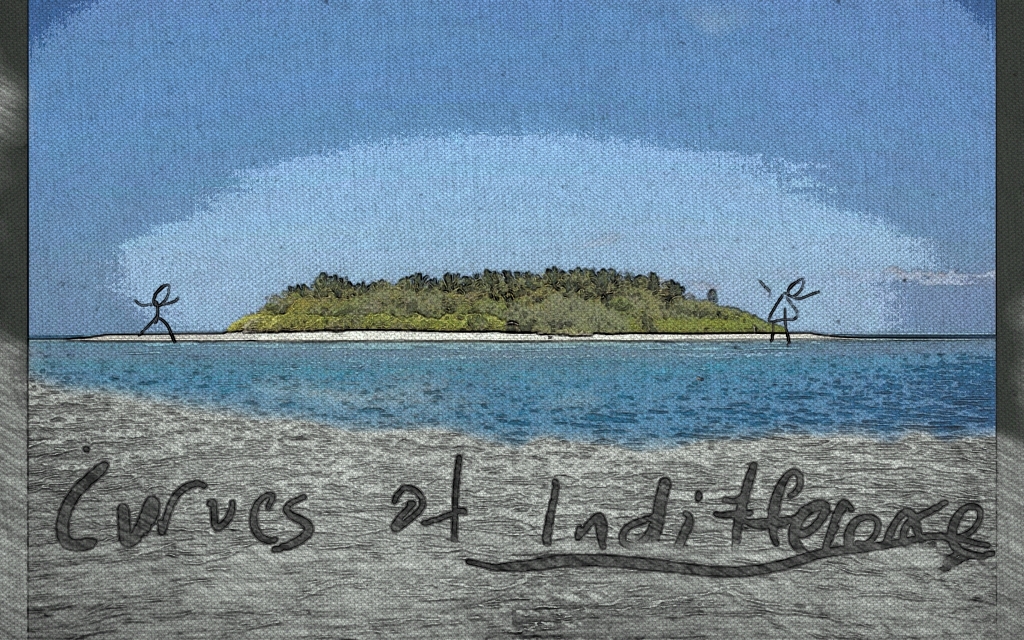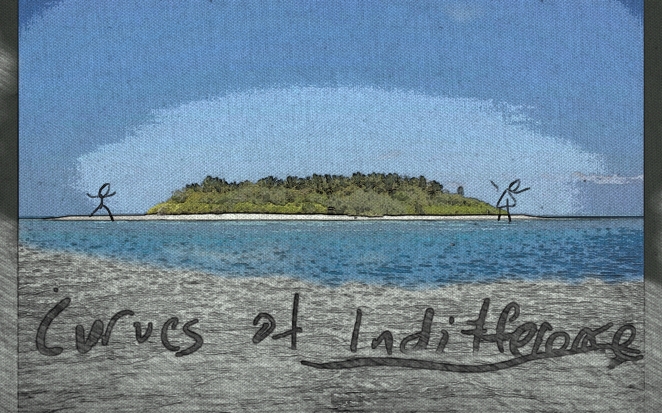When I tell people that I am doing a PhD in economics, but that my topic has nothing to do with money, I always get a lot of questioning looks. Surely my dissertation should be on bond prices and government deficits during and after the crisis. Similarly, when I explain that my research topic is about discrimination, I am always asked to explain what this has to do with economics. I should be out consoling sad women and living with gypsies in France in order to better understand their hardships. The thing is, what most people out there think of as economics, is really just finance. Finance is a sub-discipline of economics, and its most influential aspect, but that is not all there is. Economics is the study of scarcity and efficiency. It is a way of looking at the world by seeking and questioning the most efficient allocation of scarce resources. These resources can be anything: fuel, people, time and of course money. The method doesn’t change, just the input resource. My sub-discipline is Labour Economics, which is a market for people in (or out of) employment. For the past year I have been looking into using search theory as a means of analysing discrimination in the labour market. This post does not explain my research, it simply acts as an example to portray how economists view the world.
Search Theory is relatively very new on the academic scene, dating back only as far as the late 1970s. Even in this short time period, it has replaced a classical economic theory dating back centuries. Previously, the unemployment rate was defined as comprising entirely of people who do not want to work: the long term unemployed or unemployable. If someone wants to work, they get a job. If a worker loses her job, she is instantly sucked up by another unfilled job to retain balance. Anyone who has ever been unemployed can see the fallacy here; finding a job takes time, lots of unemployed people really want a job. (Economists don’t really listen to what people say, and for good reasons, but I will write about that some other day). However the classical way was convenient and it “worked” (ie it satisfied their existing beliefs), so there was no real motivation in changing it. Then along came search theory. Some people in America finally came up with a way to model this search process and explain its necessary period of unemployment, so that changed everything. In introductory economics classes you will know this as Frictional Unemployment, the “frictional” indicating that the unemployment is simply because of movement, not between physical spaces, but between conditions in the labour market: the movement from being employed to unemployed, for example. But back to search theory.
You have to imagine a deserted island in the middle of the ocean. There are two brainless, mute idiots wandering around this island, each unaware of the presence of the other. Their only goal is to find another person. What methods does each use to explore the area? How long do they keep searching? Do they both have the same motivation to search? These questions are the essence of search theory, and also a good metaphor for unemployment: the two people represent an employer and an employee, the island being the job market. Not just unemployment though, we can apply that to almost anything where two agents are searching for each other. Search theory is also used to analyse the search for a mate. Go back to the questions at the beginning of this paragraph; have they ever gone through your head during an extended period of singledom? Sometimes it may feel like you are running around on a desert island, with no way to find someone, and with no proof that any person is actually there. So you run around looking, mindlessly. As time goes by, your standards may drop, similar to how your demanded wage will drop as your duration of unemployment goes on. You may think of giving up, but you keep going, because that is what you want. Eventually you meet another person, a Match.
So you have finally met someone who is interested, this is good. But soon you realise you don’t like what they have to offer. You take into account everything that you need, everything that they have and think that you can do better. At around this time you will realise there are many other people wandering around the island (anyone who has ever been unemployed for a few months will understand this instantly: once it rains, it pours), and you can do better. So, reject the first match, keep going. Soon after, you meet another match and everything here looks good, let the negotiations begin. Remember above where I inferred that the two idiots on the island might not necessarily have the same interest and motivation in solving this match? This comes into play here, as it is all about bargaining power. Before the match is official there is a bargaining process, and rarely are the two parties on an equal footing. You are all thinking now that in my examples, the employer and the woman are in better bargaining positions. Well, it all depends on the person on the other side. You bargain now, and you can save yourself years of complaining that you aren’t getting paid enough for the work you do, or the control he/she has over the relationship. In search theory this is called the ‘Match Surplus’, which has to be shared between both parties. It is important, and before you get involved in any sort of match you should really think of how much of it you want and more importantly, deserve.
This is all very random however, and unlike the real world. In the real world we do not wander aimlessly around an island, for this would be an extremely inefficient search process. There are places to go and engage in this sort of searching and matching, free from the abundant solved matches on display everywhere. It is only the very desperate person who goes from door to door asking for work, similarly as it is only the over-eager (or Italian) man who tries to pick up girls at supermarkets. The solutions for the jobseeker analogy are newspaper classifieds, websites etc, this is obvious. What is more interesting is the latter example of the relationship search. The solution here is the bar, and it is studied intensely in certain fields of economics as it is the purest and most accessible example of a Two-Sided Market. In a two-sided market, the product offered by a firm is simply a platform where two distinct types of users can meet each other in a risk-free environment. Most non-Latin countries frown upon men approaching women in public, however in bars this is seen as normal behaviour. In economics, a bar doesn’t sell alcohol or music or ambiance, it sells men and women to each other. Ever noticed that some weeknights many bars or nightclubs charge men an entry fee, but let women in for free? They are assuming the bar will fill up with women, then the men outside will pay a premium due to the relative scarcity of men inside. If you think you go to a club for the music and atmosphere, but end up meeting a mate there, that bar has sold you the type of person you want to meet, who has similar interests to you. Otherwise you would have been wandering mindlessly around the island looking for each other.
Of course, life is a lot more complex than this. The main joke in economics is that we do it with models. Everything is simplified, modelled, and then analysed accordingly. A model is supposed to be something perfect, something that works out and does not leave any unanswered questions. All of this is impossible. The main thing is that in economics, the world is full of resources that have to be allocated efficiently. These models and metaphors don’t solve everything, but they can be used as a springboard to better understand these complex systems. And don’t think for a second that I have spent the past year learning what I have written here, for in order to consider myself an economist, every point I made above has to be expressed mathematically. This is actually the most important lesson when you come into contact with all the Social Sciences: everything we tell you is obvious, we just tell it back to you in a complicated, albeit extremely organised way.

